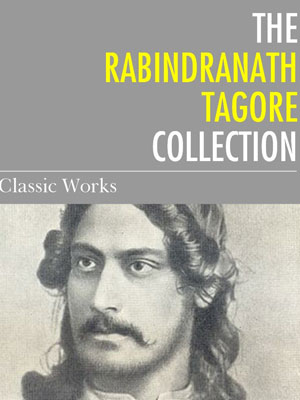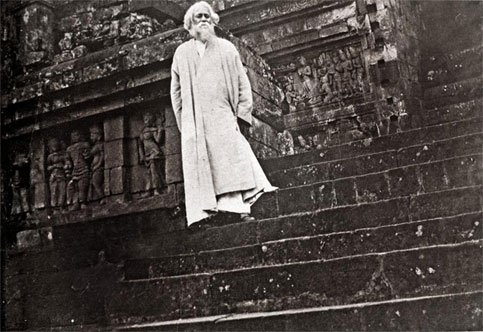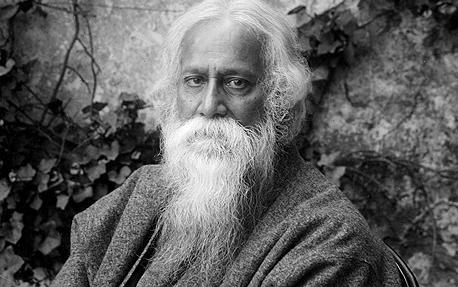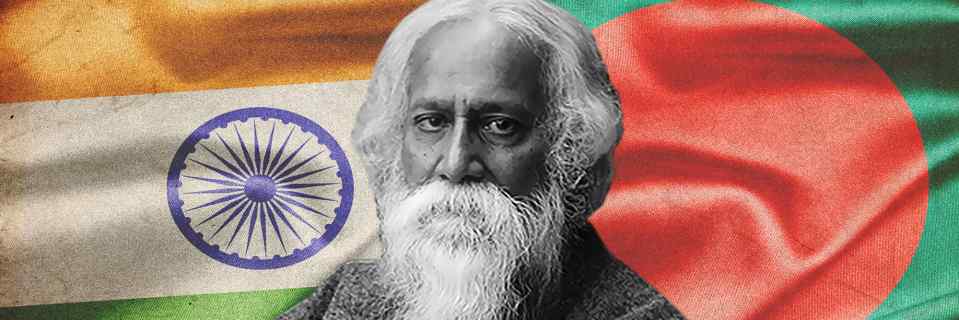Translator’s note: Historians have recorded, interpreted and analyzed the historical events/developments. Tagore, through a number of his poems, has extracted and presented us hot the human emotions, ego, uprightness, virtuosity, malice, evil etc., either allegorically or based on historical records/legends blended with his own creative imagination, which had propelled our history. Our students have to cram their history lessons upon compulsion. Could Tagore’s poems anyway supplement their lessons to enable them to understand the humans of the yore beyond their mere historical silhouettes? They may find at least some of the chapters of Indian history e.g. those on India’s goodwill mission, the struggles of the Sikhs, Marathas and Rajputs, the Buddhist period etc. animated by virtue of a good number of inspiring poems of Tagore. Our teachers may possibly give some weight to this suggestion. Here are some examples: Sagarika, Guru Govind, Bandi Bir, Prarthanatit Dan, Nakalgarh Poem and Nagarlakshmi
18. Poem: Sagarika (the daughter of the sea) of the book ‘Mahua’.
Translator’s note: Toward the close of 2000 A.D. the then President of the USA Bill Clinton visited India and while addressing a gathering in his honour, India’s the then President K. R. Narayanan had said that it was of late fashionable to call the world a ‘Small Village’, which is of course a fall out of the revolution in the communication system defeating space and time. But, Narayanan had pointed out to Clinton that in the mediaeval age the villages were ruled by the Morols (Village Chiefs) while the modern villages are ruled by the Panchayats (Village Associations) manned by the elected representatives of the people. He had thereby analogized the United Nations (UN) with the Indian Panchayats for the purpose of to-day’s ‘Small Village’ and had implied that its affairs should be overseen by the UN instead of the sole superpower now existing e.g. the USA. Of course he had meant the Big Brother role for which the USA had been aggressive from time to time often myopic to others’ causes besides her own.
History tells us about such aggressive role of some Western nations over several centuries past with their imperialist ambition. Whichever territory they had occupied, they had enslaved the local people there by brute force to enjoy their “Master” status. We ourselves had been victim of the British rule for about 2 centuries till 1947. This instinct of domination has not died even to-day and has rather been found infectious world over with the progressive perfection in genocide technology.
Indian history had been quite different. Indians had taken their voyage abroad in the past to export their humanistic ideas, religious values, music and culture along with their merchandise, but never with imperialist contemplation. The poem was written on the 1st October 1927, soon after which the Poet took his voyage to Bali island, now a part of Indonesia. India’s link with this island is age old. Stamps of Indian culture, religion, music, art etc. have survived time in this island. The Poet recalls all this past link with Bali which dates back to the glorious period of Indian history, but was particularly snapped since mid-eighteenth century when the dark period of our country was at the worst with the advent of the British rule, and the Poet was on voyage to Bali with a heavy mind while the freedom fighters’ suffering was at its peak in his own land. The Poet thus regrets his inability to offer anything precious new to Bali except his humble music.
The following quote from Tagore’s diary recording his thoughts at the time of his voyage to Java will more clarify his thoughts behind ‘Sagarika’.
“The pure dedication that Science has ushered in is for all country, all time and all men so it has imbibed in man the power of God, to drive out all woe, penury and ailment from human family with its weaponry. The Viswakarma (God of Engineering) for creation of heaven for man is this Science. But when this very Science laboured to shape up man’s desire for fruit to an enormity , it became the Yama (God of Death). If man on this earth will annihilate, it will be for this reason“ he knew Truth but not its use. He achieved divine power, but not divinity. In modern time that divine power is manifest in Europe. But has it been so for genocide? In the last war this very question has emerged stark. Europe has become a terror outside her boundaries, as evidenced throughout Asia and Africa. Europe has not come to us with her Science, but with her greed. So the blockade for manifestation of Europe within the heart of Asia. With impertinence of her Science, hubris of her power and her greed for wealth, for long Europe has cultivated this hassling of man all over the earth. When it boomeranged at her home she is anxious. She put others’ pasture on fire which has now caught on her wood. She is now wondering where to stop. Is it by halting her machinery? I don’t say so. But they have to halt their greed. Will it be achieved by religious sermons? That won’t be enough. Science also must complement it. The dedication which controls greed inwardly is of religion, but that which removes the external causes of it is of Science. These two combined, accomplish their dedications. Wisdom of science to-day awaits union with religion’s. But why all these debates are labouring my head on my way to Java? The reason is, India’s erudition once went abroad. But those aliens had regarded it favourably. Tibet, Mongolia, Malayas, wherever India had preached her wisdom, had been through genuine human relations. To-day my pilgrimage is to witness those
historical evidences of man’s holy access everywhere. Also to note is, that India of yore did not preach some cut and dried sermons, but inaugurated the inner treasure of man through architecture, sculpture, painting, music and literature, stamps of which remain in the deserts, woods, rocks, isles, rugged terrain and difficult
resolves”. [Java diary, July, 1927]
I am unaware of any poetry in any other language which better conveys one’s passion for the old link with a country through such a superb love allegory. I also think, evaluation of this poem in the context of goodwill that was in India’s political ethos in the past, as this poem reveals, but largely missing globally, is only relevant.
Bathing in the deep blue sea,
On the pebbled beach sat thee
Thy garments loose
Left scribbles on the shore profuse.
The affectionate Sun on thy body un-ornate
Left its golden paint.
With crown on my head,
In right hand archery held,
Stood in my royal attire“
Said, “I’ve come, O foreigner!”
Startled, from thy seat of rock,
Thou stood up with a shock“
Asked, “Why did you come?”
Said I, “Let thy mind calm,
Only I want to pluck flower
For God’s worship, in thy bower.”
Thou attended me with indulgent smile
We plucked Juthi, (1) Jati (1) and Champa (1) to pile. (1)
To sort those in the basket sat together,
Worshipped Nataraj (2) with our earnest prayer. (2)
The mist was over, light flooded the sky,
Facing Shiva (2), Parbati’s (2) smile did lie. (2)
As rose the evening star
On the mountain top there,
Thou alone at home
On thy waist shone
Bright blue sapphire,
Round thy head, garland of flower.
Bangles in thy hands both“
On my way playing flute I quoth“
“Guest I’m at thy door.”
Scared, stretched thy lamp my face to explore
Asked, “Why did you come?”
Said I, “Let thy mind calm,
Thy charming person I’ll adorn
With the decors I’ve borne.”
Flashed a beaming smile
On thy face, its beauty sparked awhile.
The gold necklace on thy chest
I suspended, the crown on thy head set at rest.
Lit up lights thy mates, their frolic sublime
Flooded the entire clime.
Thy ornate person did flitter
The charm of the night’s lunar glitter.
With my rhyme matched thy jingle,
Smiles at the sky the full moon single
Light and shade to and fro
As the sea waves go.
Unwittingly, the day was over
So, my ship raised its anchor.
Sudden was the wind adverse on my voyage,
Unleashed havoc, put the sea in rage
Drowned my ship in the salt water
In the dark night with all my treasure.
With shattered fate, I’m again at thy door
Attired as destitute, my royal robes no more
Saw at the temple of Nataraj (2) (2)
As before, was the decor of flowers
While at night, the festive sea
Rhymes moonlight dance in wavy glee
With thy silent face down in that fest
I stole a look at my garland round thy chest,
At my paints, listened rhythms of my song
Sway thee in ecstasy, all to me belong.
I implore thee O bonny,
Once more hold thy lamp to me
Now I’m no more crowned,
My archery no more to be found
In the southern wind brought neither
My basket to fill in thy bower
Only I’ve brought my lute
Try please to make me out thou astute.
- these are Indian names of some flowers.
- Nataraj, the Lord of Dance, is the other name of Shiva and, according to the Hindu concept, his dance cycles Destruction after Creation. Parbati is the wife of Shiva.





